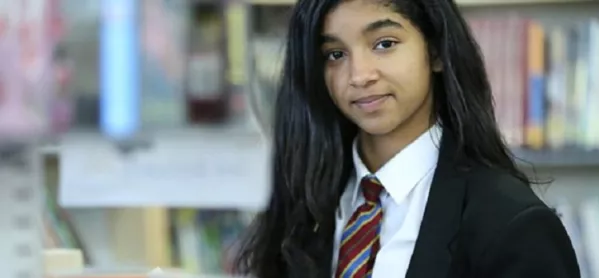- Home
- Generation Gifted review: ‘Has the idea that “poor kids underachieve” now been accepted as a given?’
Generation Gifted review: ‘Has the idea that “poor kids underachieve” now been accepted as a given?’

Why is it always the same disadvantaged students sliding down the same seemingly inevitable slope to failure?
A real danger in education today is that the idea that “poor kids underachieve” has become such a familiar trope that it is accepted as a given. An analysis of performance tables consistently shows that poor students are twice as likely to have a SEN statement, three times as likely to be excluded and half as likely to achieve the top GCSE grades as their better-off classmates. But what exactly are the barriers that these children face? Although ability is evenly spread across a country’s population, achievement is not. The rhetoric of healing social division in Britain is clearly not matched in reality.
So, what does it take for students from disadvantaged backgrounds to succeed?
Generation Gifted is a six-part BBC Two documentary series that looks at social mobility and the factors that affect it. Six promising children from low-income families are being filmed, over three critical years from Year 9 to Year 11, with two episodes airing every year until they finish their GCSEs in 2020. Their role is to personify Britain’s social mobility crisis. Most disadvantaged, able students must simultaneously manipulate two cultures: one at home and the other at school, which may be quite diverse and the conflict often affects their sense of self-worth.
Financially, the students in this programme are all too aware of how much the odds are stacked against them, but they are also struggling to cope with family breakdowns, caring for siblings with disabilities, and battling their own destructive self-doubts and crippling lack of aspiration - all too frequently reinforced by their parents.
Very able disadvantaged underachieving students are highly conscious of the social constraints imposed by the environments in which they live, even if schools can be substantially less aware. The hopeful messages emanating from their schools are clear, but they seem to be battling a sense of hopelessness, insularity and lack of ambition that, in the words of one teacher, “runs in the family and runs in the area”. Communities exert huge power, and like all power, it can be used for negative as well as positive ends. An area damaged by poverty and worklessness for several generations can all too easily hold back more able students, consciously or unconsciously.
Barriers to aspiration
In the first episode, we meet the girls. In Port Talbot, avid reader Anne-Marie knows she wants to study criminology. Her features come alive when she discusses books with the interviewer, as she reveals that she doesn’t want to be where she is; she wants to be within those pages, living other lives. “Readers feel that’s where they are most wanted,” she heartbreakingly adds. Her mother later reveals that her own education was blighted by ADHD and she dropped out of college. The way parents talk about their own relationship to education clearly sends a powerful message to their children. As a result, they have a huge potential to undermine the positive messages that schools might be promoting. After an open day at Cardiff University, she returns and questions her mother: “How do you pay for university?” They pool their uncertainties and are concerned that the fees could well be over £500. One swift Google search later lets them know they are over £9,000 a year. The ensuing silence is desperate.
Birmingham-based aspiring paediatrician Jada is determined to win a place at a nearby posh sixth-form grammar, which she believes will solve all of her problems. She has shared a double bed with her sister at her grandmother’s home since her family was made homeless. Her innocent optimism - “It doesn’t matter what class you come from, because there’s a ladder and you can climb it” - is touching. Her mother’s own unfulfilled ambition to follow a ballet career still haunts her, and she is determined that Jada’s choices will be better than hers.
Shakira is a talented artist from a deprived estate in Tamworth, Staffordshire. So far in life she has never met anyone who has gone to university, and she cannot ever see herself leaving her home town. When questioned about her future and whether she might consider applying for art school, her stepfather helpfully clarifies her horizons by responding: “Yeah, she should…but how many jobs is there really for an artist, except for tattoo?”
The “Anna Karenina” principle describes any endeavour in which a deficiency in just a single factor dooms it to failure. Derived from Tolstoy’s book which begins:“Happy families are all alike; every unhappy family is unhappy in its own way,” it posits that a successful endeavour is one where every possible deficiency has been avoided.
To take just a single illustrative example, how does community influence language development? Home and school contexts represent different cultures or subcultures and both influence language acquisition in noticeable ways. Children absorb language not just in dedicated “vocabulary-building” moments but every moment. By the age of 3, children raised by professional parents have heard 13 million words spoken and those with parents on welfare have heard less than 10 million[1]. It is therefore no surprise that vocabulary deficits can be handed down through generations.
Generation Gifted is on BBC Two at 9pm on 14 and 15 February
Ian Warwick is the senior director of London Gifted and Talented
Keep reading for just £1 per month
You've reached your limit of free articles this month. Subscribe for £1 per month for three months and get:
- Unlimited access to all Tes magazine content
- Exclusive subscriber-only stories
- Award-winning email newsletters

